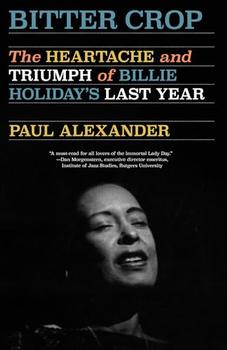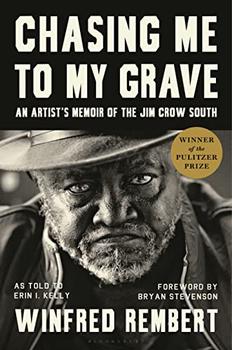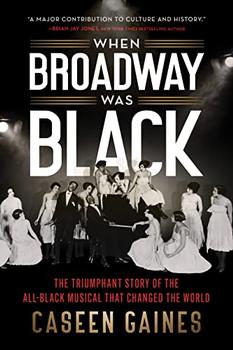
The Heartache and Triumph of Billie Holiday's Last Year
by Paul AlexanderA revelatory look at the tumultuous life of a jazz legend and American cultural icon
In the first biography of Billie Holiday in more than two decades, Paul Alexander—author of heralded lives of Sylvia Plath and J. D. Salinger—gives us an unconventional portrait of arguably America's most eminent jazz singer. He shrewdly focuses on the last year of her life—with relevant flashbacks to provide context—to evoke and examine the persistent magnificence of Holiday's artistry when it was supposed to have declined, in the wake of her drug abuse, relationships with violent men, and run-ins with the law.
During her lifetime and after her death, Billie Holiday was often depicted as a down-on-her-luck junkie severely lacking in self-esteem. Relying on interviews with people who knew her, and new material unearthed in private collections and institutional archives, Bitter Crop—a reference to the last two words of Strange Fruit, her moving song about lynching—limns Holiday as a powerful, ambitious woman who overcame her flaws to triumph as a vital figure of American popular music.
Billie's relevance returns annually whenever "Strange Fruit" is either sung or discussed during Black History Month. It is her best-selling song and Alexander devotes an entire chapter to its rich history. His stirring prose evokes a camera following Billie all over the world. Billie at the Blue Note. Billie at the Monterey Jazz Festival. Billie at the Chatterbox Musical Bar. "No matter what the motherfuckers do to you, never let them see you cry" is one of my favorite Billie quotes resurrected in this biography because of the perception it creates, that Billie Holiday was confident — and she was at times. But her insecurities were pronounced. Male abandonment beginning with her father, whose name she carried, triggered self-loathing that drugs, alcohol, and violent men only exaggerated. The aggressive and continued harassment of government agencies until her death affected her. Here's something to understand about Alexander's biography of Billie: He isn't in awe of her, and therefore treats her like one would the non-famous if they earned the right to a public biography...continued
Full Review
 (1035 words)
(1035 words)
(Reviewed by Valerie Morales).
In February 1959, Billie Holiday sang the anti-lynching song she popularized, "Strange Fruit," on the London television show Chelsea at Nine. She was battling liver disease because of a prodigious vodka and gin addiction. It was rare for Billie to sing "Strange Fruit" when she was this physically fragile.
"She just needed a reason to sing it," notes journalist Paul Alexander, author of Bitter Crop: The Heartache and Triumph of Billie Holiday's Last Year.
As Billie was known to do, she exaggerated the facts that night, telling the London audience it was a song written just for her. It wasn't.
"Strange Fruit" began as a poem titled "Bitter Fruit." It was written by a Russian Jew named Abel Meeropol, a Harvard University ...

If you liked Bitter Crop, try these:

by Winfred Rembert
Published 2023
Winfred Rembert grew up in a family of Georgia field laborers and joined the Civil Rights Movement as a teenager. He was arrested after fleeing a demonstration, survived a near-lynching at the hands of law enforcement, and spent seven years on chain gangs.

by Caseen Gaines
Published 2023
The triumphant story of how an all-Black Broadway cast and crew changed musical theatre—and the world—forever.
On the whole, human beings want to be good, but not too good and not quite all the time
Click Here to find out who said this, as well as discovering other famous literary quotes!